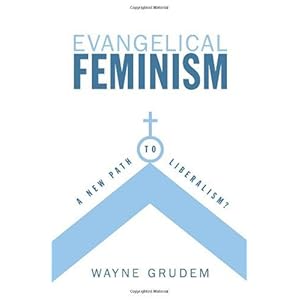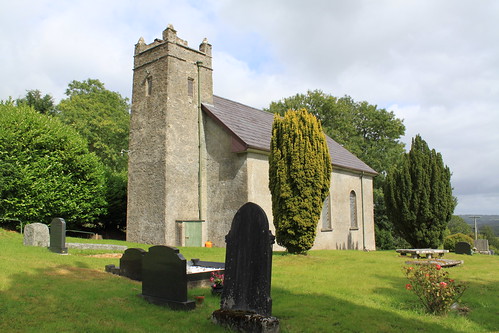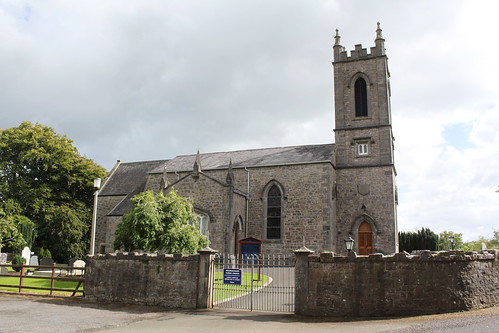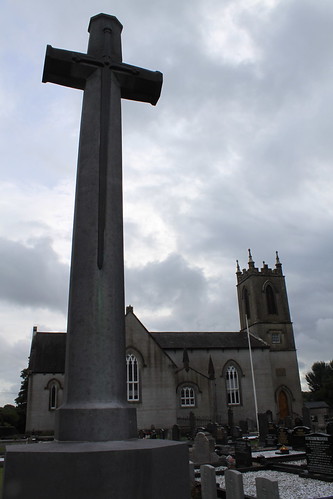Mindset 14/09/2010
Christ in all the Scriptures: Genesis 3:15
The New Testament tells us all about Jesus, so why do we need to bother with the Old Testament? We’re New Testament Christians, after the cross, so why would we need to read the Old Testament, or look at what it says? After all, it’s old, and young people and youth leaders like new things, fresh things, not ancient things.
Perhaps as you’ve been thinking about your programme for the year, or talking to your young people, this might be the kind of thing you hear. It can seem harder for us to understand, because it’s further back in time, and yet it’s worth it when we grasp the Old Testament. You see, it’s more than just Sunday School stories like Noah’s ark, David and Goliath, and Daniel in the lions’ den. The Old Testament prepares the way for Jesus, just like John the Baptist does.
Just think for a moment about God’s plan of salvation. When did God the Father and the Lord Jesus decide that the cross was necessary? Was it just before the angel Gabriel was sent to see Mary? Was it perhaps a bit earlier, when the kingdoms of Israel and Judah failed? Maybe when the people were breaking the covenant that Moses had been given at Sinai? Or was it even in our reading tonight, when Adam and Eve messed everything up, and the Father turned to the Son and said - we’re going to have to do something about this. Was the coming of the Lord Jesus and the cross just Plan B?
We’ll come back to Genesis in a moment, but if you have a Bible, look over to 1 Peter 1:18-21. (Read) Peter says that Christ was ‘foreknown before the foundation of the world but was made manifest in the last times.’ Even before God created all that exists, in eternity past, the Son of God was planning to come to redeem us, the lamb who was slain. So God wasn’t flummoxed when Adam and Eve succumbed to temptation; God wasn’t surprised when they turned away.
It’s helpful to remember that whenever we now turn to Genesis 3. Rather than just an ancient story, this is what Luther described as the protoevangelium - the first gospel. Here in Genesis, we find the first hint, the first pointer, the first sign of the rescue that Jesus will accomplish so many thousand years later. But what is it all about? As with any verse of Scripture (particularly when we’re dealing with one verse!), we need to get some context. We’ll use three quick points to unpack the verse in its context: 1. Paradise lost. 2. God’s Judgement. 3. God’s Grace.
I hope I’m not insulting you by spending some time laying the foundations, but it’s not bad thing to be reminded of these things - particularly where they can seem so familiar that we think we have it all sussed. In Genesis 1, we see God completing the work of creation, and Genesis 2 gives us some more details about the humans God created as the pinnacle of creation. Remember God’s verdict on the whole thing? ‘God saw everything that he had made, and behold, it was very good.’ (Gen 1:31).
Yet as we come into chapter three, God’s good creation is being unravelled. Things are being turned upside down. The humans, Adam and Eve are made in the image of God, given dominion to rule over the rest of creation, with Adam being given the lead role. But what do we find in Genesis 3? The serpent, a created being tells Eve what to do, and she tells Adam what to do. No reference to God; ignoring God’s good command - indeed, God’s only command. Aflame with desire, for the food, for the wisdom, for the chance to be like God, they turn their back on God.
Suddenly, everything has changed. It’s as if shame has been switched on for the first time - verse 7 says their eyes were opened, and they knew they were naked. Have you ever experienced that sense of shame when you’re found out? I remember years ago being in Newcastle, in the amusements. I might have been about 8, and having a go on the tupenny sliders; timing the moment to put your coin in, expecting to get a fortune of coins dropping out the bottom (which was probably about 20p!). The coins were perched on the edge; they should have fallen; perhaps they just needed some encouragement.
I banged on the glass; tried to shuffle the coins over the edge - and at once the alarm went off; a light flashed on top; and, you’ve guessed it; the wee man came over to tell me off. I had been caught doing something wrong. Worse, it was in public. I knew shame.
This is Adam and Eve’s first time of knowing shame. Remember, they were living in paradise; sinless perfection; walking with God in the garden. And it all comes crashing down round them. They know the Lord will be coming walking, so what do they do? They hide from God! (Incidentally, we’ve been doing that ever since; turning away from God, hiding from him. It’s why we rejoice that God comes looking for us; God comes calling for us, rather than waiting for us to go looking for him...)
So that’s our first point, the background - Paradise Lost. Our second point is that of God’s judgement. As sin enters the world for the first time, God judges. Yet even as God judges, we see the effects of sin continuing, spreading, making things worse. God asks Adam what has happened, and suddenly everyone is out for themselves. Adam almost tries to make out that it’s God’s fault: ‘The woman whom you gave to be with me, she...’ Adam blames Eve, Eve blames the serpent, and the serpent doesn’t have a leg to stand on. (Groan!)
From verse 14 onwards, we see that there are consequences for the serpent, for Eve, and for Adam. Nothing will be the same again. God maintains his character and judges sin. He cannot do otherwise. Suddenly, thistles and thorns will grow, making labour difficult; pain and struggle will be the normal state of affairs in the fallen world. And finally, there is separation; as Adam and Eve are driven out of the Garden, removed from God’s presence.
Are you ever asked why things are the way they are? Why there’s death, disease, famine, and all the rest of the problems we face? Here in Genesis 3, we see that the world, the whole of creation is under this curse of God, and all because of sin, our sin in our first parents. Our world is under judgement.
It would be enough to make you despair. We had it all, nearness to God, a perfect world, perfect relationships, and all was destroyed. A moment ago I said that God was acting according to his character in judging; but thankfully Genesis 3 isn’t the end of the story. It would be a short Bible and a short history of the world if God had wiped out Adam and Eve that very evening. But he didn’t; he was also true to himself and his grace, which brings us to our third point: God’s grace.
Amidst the darkness of the scene, there is this pinprick of light; this first dawning of the glorious gospel; the first hint of rescue. Let’s look at verse 15. God is speaking to the serpent: ‘I will put enmity between you and the woman, and between your offspring and her offspring; he shall bruise your head, and you shall bruise his heel.’
This is part of the judgement of the serpent, and yet it displays the grace of our God, in telling of the future final fate of the serpent, our enemy, Satan. As Calvin remarks, ‘observe that the Lord spoke not for the sake of the serpent, but for the sake of the man.’ God’s judgement gives hope to Adam, and to all of us.
God promises a serpentcrusher will come, the offspring of the woman, who will be injured, but will bruise the serpent’s head. That’s all we’re told in the text, and yet what a hope!
We see the enmity between the serpent and Eve’s children throughout the history of the Old Testament. Just think of the destruction of the male infants in Egypt - trying to destroy the offspring of Eve (the children of Israel, the chosen nation); or later in Esther’s time, the planned destruction of the Jews by Haman. Time and again, God delivers his people, allowing the scene to be set, the people prepared for the serpent crusher. At the right time, the offspring of the woman sets foot on earth, born of woman, ready for the decisive battle.
We see the enmity continuing when Herod unleashes his plot to murder the baby boys of Bethlehem; when Jesus is tempted in the wilderness; when Peter tries to talk Jesus out of the way of the cross (Mark 8). But nothing will deter Jesus from going to the cross; and as he dies, having been rejected by the chief priests and scribes; mocked by the crowds; condemned by the nations; abandoned by his friends; he dies alone. It looks like a terrible, unfortunate defeat.
That was Friday, but fast forward to Sunday morning, and the cross, the worst the world could throw at Jesus turns out to just be a bruise on the heel; Jesus is raised to life by the Father through the power of the Spirit; at that very moment, he bruises the serpent’s head. A crushing blow; defeating sin and death. What seems to be Jesus’ defeat turns out to be his great victory.
The Scriptures point to Jesus, his cross work, his death and resurrection. The Old Testament gives us the promises of God, and the New Testament shows us how Jesus fulfils them. God is faithful to his promises, and as we study the Old Testament, we see the work of Christ in fuller detail, and that leads us to rejoice. Our enemy, our accuser has been dealt a fatal blow; his days are numbered. Just as Adam and Eve put their trust in this serpent crusher, so we, who can see exactly how God fulfilled the promise, we can also trust the serpent crusher. Jesus overturns the curse that lies upon us and upon the world; and reverses the effects of the curse, so that we can look forward to the new heavens and the new earth:
Saviour of Calvary,
Costliest victory,
Darkness defeated
And Eden restored;
As another hymn puts it:
For Judah’s Lion bursts His chains,
Crushing the serpent’s head;
And cries aloud through death’s domains
To wake the imprisoned dead.
Let’s rejoice that Jesus is the serpent crusher. Our enemy is defeated; and God graciously gives us to share in the victory. As Paul writes to the church in Rome: ‘The God of peace will soon crush Satan under your feet.’ (Rom 16:20). Amen, and amen.
This sermon was preached at Mindset and the Midweek Holy Communion in St Elizabeth's Church, Dundonald on Tuesday 14th & Wednesday 15th September 2010.










